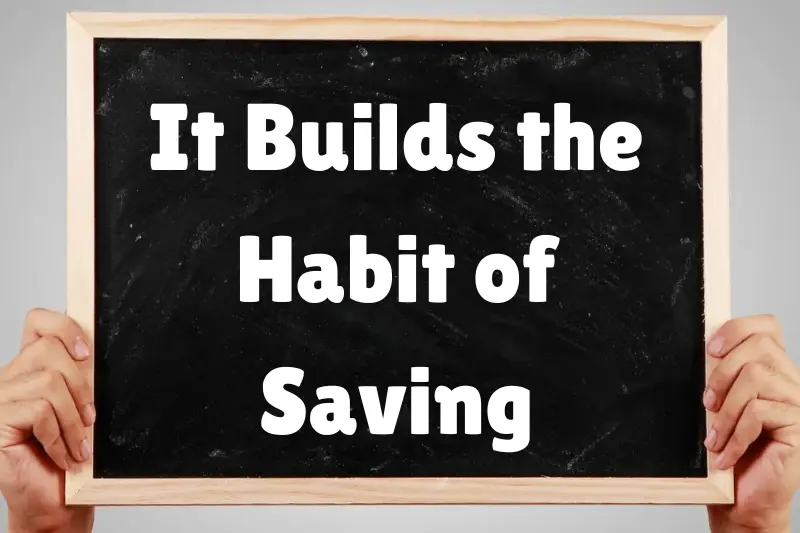Let’s be real—sticking to financial discipline isn’t always a walk in the park. It often means saying no to that tempting online sale, skipping the extra coffee run, or holding off on a luxury vacation so you can prioritize bigger goals. In the moment, it might feel like you’re missing out or living too restricted.
But here’s the big question: is it really worth all that effort?
Yes—100%. Financial discipline is one of the most valuable life skills you can ever develop. It doesn’t just help you save a few extra dollars—it shapes your mindset, builds stability, reduces stress, and sets you on the path to real wealth. Think of it like going to the gym: skipping fast food today or pushing through a workout might not feel exciting, but the long-term payoff—better health, more energy, and confidence—is priceless.
And this is exactly why financial discipline matters for wealth—without it, even the biggest paycheck can disappear quickly. With it, even a modest income can grow into long-term abundance and financial freedom.
Now, let’s explore how practicing discipline with your money can completely transform your financial journey.
1. It Builds the Habit of Saving

Discipline and wealth go hand in hand because discipline creates consistency. Imagine earning $5,000 a month but saving nothing because you’re always waiting for “leftover money” to put aside. Chances are, there won’t be much left.
Financial discipline flips the script. Instead of saving what’s left, you save first and spend later. This habit is called “paying yourself first.”
- Example: If you automatically save 15% of your income before you touch it, over a year, that’s almost two full paychecks saved. Over 10 years, it can grow into tens of thousands of dollars—especially when invested.
Savings aren’t just about numbers. They’re about options: the option to buy a home, invest in opportunities, or even take a break from work without financial panic.
2. It Protects You from Debt Traps
We live in a world of instant gratification—buy now, pay later. Credit cards, personal loans, car loans, and even buy-now-pay-later apps are designed to make spending easier.
But here’s the catch: debt is wealth in reverse. When you spend tomorrow’s money today, you’re sacrificing your future for short-term pleasure.
Financial discipline helps you resist those temptations. Instead of buying the latest gadget just because your friend has it, you stop and ask: Do I really need this, or is this just a passing want?
- Example: If you carry $5,000 in credit card debt with 20% interest and only pay the minimum, you’ll end up paying thousands more in interest—money that could have been invested for your future wealth.
Discipline isn’t about depriving yourself—it’s about protecting yourself from debt traps that quietly rob your financial future.
3. It Creates Long-Term Security
Life is unpredictable. Medical emergencies, car breakdowns, job layoffs, or sudden family expenses can appear out of nowhere. Without preparation, these moments can lead to financial disaster.
That’s where discipline comes in. By consistently setting aside an emergency fund (usually 3–6 months of expenses), you build a financial shield. Instead of panicking or relying on debt, you can handle the situation calmly.
- Example: Imagine losing your job unexpectedly. With financial discipline, you already have six months of savings. That means you don’t have to rush into the first job you find—you can take your time to choose the right one.
Security equals freedom, and freedom equals peace.
4. It Teaches Patience (and Patience Builds Wealth)
Wealth isn’t a lottery ticket. It’s a slow-growing tree that you have to nurture.
Financial discipline teaches you delayed gratification—the ability to wait. Instead of spending $200 on clothes today, you might invest it. Ten years later, that $200 investment could be worth $500 or more.
This patience is what separates wealthy individuals from those who live paycheck to paycheck. They understand the power of compounding—how small, consistent investments grow over time.
- Example: If you invest just $300 a month at an average 8% return, you’ll have over $450,000 in 30 years. That’s the magic of patience and discipline working together.
5. It Allows You to Invest More

Discipline isn’t just about cutting spending—it’s about redirecting money into opportunities that grow. When you resist spending on short-term pleasures, you free up funds to invest in stocks, real estate, retirement accounts, or even starting a side business.
Investments are the real engines of wealth. Your salary pays the bills, but your investments build your future.
- Example: Instead of upgrading your phone every year for $1,200, imagine investing that money annually for 20 years. With an average return, that could grow into nearly $60,000. That’s a huge difference between a drawer full of old phones and actual wealth.
6. It Gives You Peace of Mind
Money stress is one of the biggest causes of anxiety and relationship problems. Living paycheck to paycheck or being buried in debt creates constant worry.
Financial discipline reduces that stress because you know you’re in control. You have savings, you’re avoiding debt, and you’re steadily building toward something greater.
This peace of mind isn’t just about money—it’s about life. It improves your mental health, your relationships, and your overall happiness.
- Example: Imagine choosing a vacation not based on what you can afford right now, but what fits comfortably into your financial plan. That kind of freedom feels empowering, not stressful.
7. It Leads to True Freedom
At the end of the day, wealth is about choices.
The choice to work because you enjoy it—not because you’re trapped by bills.
The choice to retire early, travel the world, or spend more time with family.
The choice to say no to things that don’t align with your values.
And guess what? Those choices are unlocked by discipline. Every time you delay an impulse purchase, every time you save first, every time you invest instead of splurge—you’re buying yourself freedom.
- Example: Someone who saves and invests consistently for 20 years can retire decades earlier than someone who spends everything they earn. Discipline today equals freedom tomorrow.
You may also like to read this:
7 Best Smart Investing Apps and Platforms To Use In 2025
Active Investing Vs Passive Investing: Which Strategy Wins?
What Is Wealth Building? Guide To Financial Freedom
7 Types of Wealth Building Strategies You Must Know
10 Proven Steps on How To Build Wealth From Nothing In 2025
How to Build Financial Discipline in Your Daily Life
Understanding why financial discipline matters for wealth is powerful, but knowledge without action doesn’t change much. The real transformation happens when you apply it in your daily life. Here are some practical steps to get started:
1. Create (and Stick to) a Budget
A budget isn’t about restricting yourself—it’s about knowing where your money goes. Track your income and expenses, set limits, and assign money toward savings and investments first. Apps like Mint, YNAB (You Need A Budget), or even a simple spreadsheet can make budgeting easy.
Pro tip: Follow the 50/30/20 rule:
- 50% for needs (rent, bills, groceries)
- 30% for wants (dining out, hobbies, shopping)
- 20% for savings and investments
2. Automate Your Savings
Discipline can be tiring if you rely only on willpower. Instead, set up automatic transfers to your savings or investment accounts. This way, saving happens on autopilot—before you even get the chance to spend the money.
3. Set Clear Financial Goals
Vague goals like “I want to be rich” don’t motivate you. Clear goals like “I want $10,000 saved in two years” or “I want to retire by 50 with $1 million” give you a target. Discipline feels easier when you have a vision to chase.
4. Learn to Differentiate Wants vs. Needs
Impulse spending usually happens when we confuse wants with needs. Before buying something, pause and ask:
- Do I need this, or do I just want it right now?
- Will this purchase bring long-term happiness, or just a short-term rush?
Often, just waiting 24 hours before making a purchase is enough to avoid unnecessary spending.
5. Surround Yourself with the Right Influence
If everyone around you spends recklessly, it’s easy to follow. Instead, learn from financially disciplined people—whether it’s friends, mentors, books, or podcasts. Being in the right environment helps reinforce good habits.
6. Reward Yourself the Smart Way
Discipline doesn’t mean living a joyless life. Plan rewards within your budget—like a nice dinner, a short trip, or a new gadget—after meeting certain financial goals. This way, you enjoy life while still staying on track.
7. Keep Learning About Money
The more you understand personal finance, the easier it is to stay disciplined. Read books like Rich Dad Poor Dad or The Millionaire Next Door, or follow finance blogs and YouTube channels. Knowledge fuels motivation.
Final Thoughts
So, why financial discipline matters for wealth comes down to this: wealth isn’t built by luck or one-time windfalls. It’s built by consistent, disciplined decisions. Without discipline, money slips through your fingers. With it, you gain security, growth, and freedom.
Sure, saying no to that impulse buy may feel tough today. But imagine your future self—financially secure, debt-free, and free to live life on your terms. That version of you will thank the disciplined choices you made today.
Wealth isn’t just about having money—it’s about having control, peace, and freedom. And the best part? You don’t need to wait for tomorrow to start. Discipline is a decision you can make right now.
FAQs
1. What is financial discipline in simple terms?
Financial discipline means managing your money wisely by controlling spending, saving consistently, avoiding unnecessary debt, and prioritizing long-term goals over short-term pleasures.
2. Why does financial discipline matter for wealth?
Because without discipline, even a high income can disappear through overspending or debt. Discipline ensures you save, invest, and grow your money consistently, turning financial habits into lasting wealth.
3. How can financial discipline help me avoid debt?
When you’re disciplined, you spend within your means, resist impulse buying, and create a budget. This prevents you from relying on credit cards, loans, or “buy now, pay later” traps that can lead to expensive interest payments.
4. Can I build wealth with an average income if I practice financial discipline?
Yes! Wealth isn’t only about how much you earn—it’s about how much you keep and grow. With consistent saving, smart investing, and avoiding debt, even modest incomes can accumulate significant wealth over time.
5. What are some practical ways to develop financial discipline?
Create and follow a budget
Automate your savings and investments
Set clear financial goals
Differentiate between wants and needs
Avoid impulse spending by using the 24-hour rule
Continuously learn about personal finance




